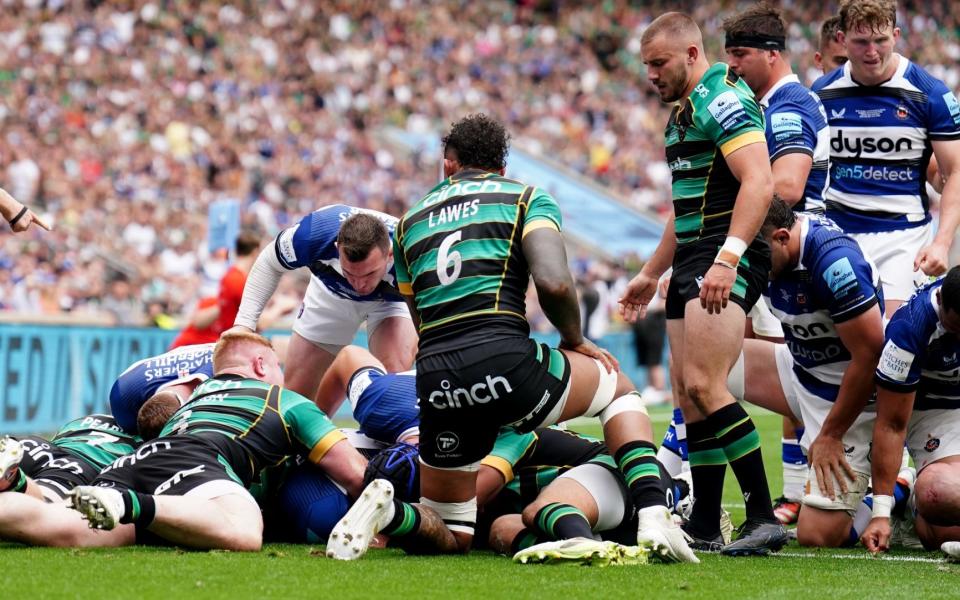Premiership clubs fear 30-game limit could see top players regularly benched

There is growing concern among Premiership clubs that the new beefed-up 30-game limit for players as part of the new professional game partnership will force them into odd tactical selections during the season.
Under the previous deal between the Rugby Football Union and Premiership Rugby, players were meant to feature in fewer than 35 matches a season and play fewer than 30 sets of 80 minutes.
However, the ‘player rest and load principles’ in the new eight-year agreement now limits players to 30 match involvements per season, which represents significant reduction. Even if a player takes the field as a replacement for one minute it will count as one of their 30 match involvements.
The reduction comes after a study of player game time undertaken by Bath University revealed players were at a greater risk of sustaining an injury if they were involved in more than 30 games a season.
Yet with the 10-game British and Irish Lions tour of Australia next summer set to be included within 30 match involvement limit, and the club’s leading England players potentially involved in nine Tests this season, clubs are facing the prospect of having to predict when to leave senior players out of match-day squads without knowing if they are guaranteed to be involved on the international stage, or in the knock-out stages of the Gallagher Premiership and Investec Champions Cup.
The most obvious change could see senior players left out of the match-day squad entirely for games that will not have a major bearing on the result of the fixture, or the return of only using replacements in the case of injuries rather than tactical switches to preserve their match count for the season.
‘There are so many unknowns’
There is a concern that particularly for younger players, the match involvement limit will overly restrict their game-time minutes across the season. For example, Theo Dan, the Saracens and England hooker, was involved in 37 games last season but only played around 1,300 minutes, which was around half the limit.
At a time when club rugby desperately needs its international players to be involved in as many matches as possible to grow interest in the game, it could lead to an immediate effect. Harlequins, for example, might choose to rest Marcus Smith for their home game against Newcastle in the second round on September 28.
The situation is further complicated by the introduction of up to 25 enhanced elite player squad contracts that will give England head coach Steve Borthwick the final decision on medical treatment for players and also oversight of individual development programmes for those contracted.

“There are so many unknowns at the minute,’ said one source. “Nobody knows how this is going to play out. We are being asked to look ahead to the business end of the season and predict if we are going to be involved in Premiership play-offs or semi-finals of the European Cup.
“The concern is that by the time we get to Christmas, the senior guys have already played around 11 or 12 games.”
And while the professional game partnership said that “sanctions for breaching welfare principles will be included in new regulations” it is not clear what they might be or if the guilt will lie with the club or national side.
“If the 30-game limit is to be respected there needs to be a clear process about how we arrive at it, and how that load is balanced between club and country,” said another source.

 Yahoo Sport
Yahoo Sport 



































































